General Secretary Nguyen Phu Trong visits a photo exhibition on Vietnamese diplomacy at the 32nd Diplomatic Conference_Source: vietnamplus.vn
1- On December 14, 2021, in his speech at the National Foreign Affairs Conference to implement the Resolution of the 13th National Party Congress, General Secretary Nguyen Phu Trong mentioned "the very special and unique foreign affairs and diplomacy school of the Ho Chi Minh era, imbued with the identity of the "Vietnamese bamboo tree" , "firm roots, strong trunk, flexible branches", imbued with the soul, character and spirit of the Vietnamese people" (1) .
On December 19, 2023, at the 32nd Diplomatic Conference, General Secretary Nguyen Phu Trong continued to emphasize the very special and unique foreign policy and diplomacy school, imbued with the identity of "Vietnamese bamboo" . That is, being both steadfast in principles and flexible in strategies; gentle and clever, but also very resilient and determined; flexible and creative, but very brave and steadfast in the face of all difficulties and challenges, for the independence and freedom of the nation, for the happiness of the people; united and benevolent, but always determined and persistent in protecting national interests.
According to the general description of General Secretary Nguyen Phu Trong, the "Vietnamese bamboo" school of foreign affairs and diplomacy was formed during the renovation period of nearly 40 years. This school was developed by the Communist Party of Vietnam on the theoretical foundation of Marxism-Leninism and Ho Chi Minh thought, inheriting and promoting national identity and traditions, selectively absorbing the quintessence of the world and progressive ideas of the times. Thus, referring to the "Vietnamese bamboo" school of foreign affairs and diplomacy is referring to the guidelines, policies, and foreign policies of the Party and State of Vietnam, as well as the foreign affairs and diplomatic activities of the entire Vietnamese political system in all areas of social life during the renovation period.
2- When giving a general description of the "Vietnamese bamboo" school of foreign affairs and diplomacy, General Secretary Nguyen Phu Trong emphasized that this is a school that was "developed on the theoretical foundation of Marxism-Leninism and Ho Chi Minh thought" (2) .
Marxism-Leninism equips us with a scientific, dialectical and revolutionary worldview and methodology to clearly see the laws of development and objective trends of human society. With that worldview and methodology, the Communist Party of Vietnam sees the world as a complex entity, always in a state of constant movement, both following objective laws and trends and undergoing complex interactions, containing both cooperation and struggle between nations and peoples, between economies and between cultures... The law of development of human society is to go from a low socio-economic form to a high socio-economic form, and the highest socio-economic form is communism, the first stage of which is socialism. Currently, humanity is in a historical transition period from the capitalist socio-economic form to the communist socio-economic form, starting with the October Revolution in Russia in 1917. The outstanding feature in the current period of the era is that countries with different social regimes and levels of development coexist, both cooperating and struggling, fiercely competing for national and ethnic interests (3) .
Standing firmly on the stance of Marxism-Leninism, inheriting and promoting national identity and traditions, selectively absorbing the world's quintessence and progressive ideas of the times, President Ho Chi Minh developed a system of fundamental viewpoints, directing the planning and successful implementation of the Party's guidelines and policies of the Vietnamese State. In his ideological treasure that the Communist Party of Vietnam took as the foundation to form and develop the "Vietnamese bamboo" school of foreign affairs and diplomacy, it is noteworthy that the Vietnamese revolutionary ideology is a part of the world revolution, Vietnam is a constituent part of the world as a whole; "responding to all changes with the unchanging", persistently implementing national and ethnic interests in all circumstances, steadfast in strategy, flexible in tactics; class solidarity, national solidarity and international solidarity; combining national strength with the strength of the times; “Strength is the gong, diplomacy is the sound. The louder the gong, the louder the sound” (4) ; “Be friends with all democratic countries and do not make enemies with anyone” (5) ; “helping a friend is helping yourself”; diplomacy is a “front”...
It can be said that the scientific, dialectical, revolutionary worldview of Marxism-Leninism and Ho Chi Minh thought helps our Party have a clear view of the political, economic and social structure, of the objective laws and trends of today's world, and of Vietnam's position in the world's movement. With that view, the Communist Party of Vietnam has outlined guidelines and proposed policies for national development that are both suitable for Vietnam's reality and suitable for the objective laws and trends of the world and human society, leading the Vietnamese revolution from one victory to another.
From the vivid practice of foreign affairs activities during the renovation period, the Communist Party of Vietnam has drawn up a system of guiding viewpoints for the planning and successful implementation of the foreign policy of independence, self-reliance, peace, friendship, cooperation and development, diversification and multilateralization of relations, and proactive and active international integration. Particularly noteworthy are the following viewpoints: 1- Consistently implementing the foreign policy of independence, self-reliance, peace, friendship, cooperation and development, diversification and multilateralization of foreign relations (6) ; 2- Ensuring the highest national interests on the basis of the fundamental principles of the United Nations Charter and international law, equality, cooperation, and mutual benefit (7) ; 3- Ensuring the unified leadership and direction of the Party and the centralized management of the State over foreign affairs activities and international integration (8) ; 4- Uphold the principles of independence, unity and socialism, while being very creative, dynamic, flexible, suitable to the position, conditions and specific circumstances of Vietnam, as well as developments in the world and regional situation, suitable to the characteristics of each subject with which Vietnam has relations; 5- Combine national strength with the strength of the times, domestic strength with international strength (9) ; 6- Grasp the two aspects of cooperation and struggle in international relations with a dialectical view of objects and partners: "in each object there may still be aspects that need to be sought after and cooperated with; in some partners, there may be differences and contradictions with our interests" (10) ; 7- Vietnam is a friend, a reliable partner and an active, responsible member of the international community (11) ; 8- Proactively and actively integrate into the international community comprehensively, deeply and effectively" (12) ; 9- Grasp and properly resolve the relationship between independence, autonomy and international integration (13) ; 10- Promote the pioneering role of foreign affairs in creating and maintaining a peaceful and stable environment, mobilizing external resources to develop the country, enhancing the country's position and prestige (14) ; 11- Implement the "four no's" policy: not allowing foreign countries to set up military bases or use territory to fight against other countries, not participating in military alliances, not allying with one country to fight against another, not using force or threatening to use force in international relations; 12- Build a comprehensive and modern diplomacy with three pillars: party diplomacy, state diplomacy and people's diplomacy (15) .
People introduce Quang Yen three-walled sailing boat tourism gift to tourists (photo: Duong Van Toan)_Source: nhiepanhdoisong.vn
3- National and ethnic interests are always the starting point and basis for planning and implementing foreign policies and guidelines, and the "root" of foreign affairs and diplomacy. General Secretary Nguyen Phu Trong emphasized: "In the thousands of years of building and defending the country of our people, independence, self-reliance and the highest guarantee of national and ethnic interests have always been the immutable principles and the red thread running through all our activities" ( 16) .
Since the implementation of the comprehensive national renovation (1986) up to now, the foreign policy of independence, self-reliance, peace, friendship, cooperation and development, diversification and multilateralization of foreign relations (17) of the Party and State of Vietnam has been affirmed throughout the National Congresses of the Party. With that foreign policy, Vietnam always maintains independence and self-reliance in planning and implementing foreign policies, has its own viewpoints and stances on international issues... Maintain independence and self-reliance, but not isolate, close, or isolate itself, but always expand equal and mutually beneficial cooperation with countries, economies, international and regional organizations; always strive for peace, promote friendship, cooperation, development and social progress. In the context of complex changes in the world and the region, Vietnam's consistent implementation of a foreign policy of independence, self-reliance, peace, friendship, cooperation and development, diversification and multilateralization has created trust in cooperative relations between Vietnam and other countries and international and regional organizations, constantly enhancing Vietnam's international position and prestige.
Since the formation of Vietnam's foreign policy in the renovation period, the Communist Party of Vietnam has emphasized the guiding viewpoint: Upholding the principles of independence, unity and socialism, while at the same time being very creative, dynamic, flexible, suitable to the actual strength, conditions and specific circumstances of Vietnam as well as developments in the world and regional situations, suitable to the characteristics of each object with which Vietnam has relations. The flexibility in Vietnam's foreign policy and steps is not a leaning, pragmatic, unprincipled, but rather a creative, dynamic, flexible strategy on the basis of a steadfast strategy to ensure the highest national interests of Vietnam in all circumstances. Only on the basis of upholding principles and steadfastness in strategy can we be creative, dynamic and flexible in strategy. At the same time, creativity, dynamism and flexibility in strategy help the implementation of the strategy to be highly effective.
The practice of Vietnam's foreign affairs and diplomacy in the period of renovation clearly demonstrates the firm adherence to national and ethnic interests, the steadfastness and consistency in policies, the creativity, dynamism, and flexibility in strategies and in each specific step and policy; creating three distinctive features of the "Vietnamese bamboo" school of foreign affairs and diplomacy, as General Secretary Nguyen Phu Trong summarized: "firm roots, strong trunk, flexible branches".
4- The 6th National Party Congress (December 1986) initiated the comprehensive renovation of the country. At that time, Vietnam was facing many difficulties and challenges, both in terms of socio-economics and foreign relations. Meanwhile, the Soviet Union and the socialist countries of Eastern Europe fell into a serious crisis. In that context, in terms of foreign affairs, there were two major and extremely urgent issues that Vietnam had to deal with: One was to break the siege and embargo of the country, create a peaceful and stable environment to consolidate national independence, escape the socio-economic crisis and develop the country. Two was to adapt to the objective context of the world that was changing profoundly with the upheavals in the world situation... From handling these issues, the process of forming Vietnam's foreign policy in the renovation period was promoted.
On May 20, 1988, the Politburo of the 6th tenure issued Resolution No. 13-NQ/TW, “On foreign affairs tasks and policies in the new situation”, in which it was stated that the weak economic situation, the economic siege and political isolation would become a major threat to national security and independence. From there, the Resolution set out the task of making every effort to win over fraternal countries, friends and public opinion around the world, to divide the enemy ranks, “make more friends, reduce enemies”, and to defeat the plot to isolate Vietnam economically and politically; to proactively shift the struggle from a state of confrontation to a struggle and cooperation in peaceful coexistence; to make every effort to take advantage of the strong development of science and technology and the high internationalization trend of the world economy, and at the same time to take advantage of the optimal position in the international division of labor. Resolution No. 13-NQ/TW of the 6th Politburo demonstrates the innovation in thinking and awareness of the Communist Party of Vietnam about current and world events; opening the way for the planning of the innovative foreign policy of the Communist Party of Vietnam.
Next, the 6th Central Conference (March 1989), 7th Central Conference (August 1989) and 8th Central Conference (March 1990) of the 6th tenure focused on assessing the world situation related to the changes occurring in the Soviet Union and the Eastern European socialist countries; proposing policies to deal with the complex impacts of developments in the world situation on the country and on the renovation process in Vietnam.
Arrive At the 7th Party Congress (December 1991), Vietnam affirmed “equal and mutually beneficial cooperation with all countries, regardless of different political and social regimes, on the basis of the principles of peaceful coexistence” (18) . The 7th Party Congress adopted the Platform for national construction during the transition period to socialism, which identified one of the six characteristics of the socialist society that the Vietnamese people are building as “having friendly and cooperative relations with the people of all countries in the world”; and identified the goal of Vietnam’s foreign affairs as “creating favorable international conditions for the cause of building socialism and defending the Fatherland, while actively contributing to the common struggle of the world’s people for peace, national independence, democracy and social progress” (19) .
Implementing the Resolution of the 7th Congress, the 3rd Central Conference of the 7th term (June 1992) issued a resolution on foreign affairs, clearly defining the tasks of foreign affairs, guiding ideology of foreign policy, and principles for handling international relations issues. This is a document marking the formation of the foreign policy of the Communist Party of Vietnam for the period of comprehensive national renewal.
The foreign policy of innovation was officially affirmed by the 7th Mid-Term National Delegates Conference (January 1994) with the statement "Vietnam wants to be friends with all countries in the world community, striving for peace, independence and development" (20) .
Since the 8th Party Congress (June 1996) to date, the Communist Party of Vietnam has consistently affirmed its foreign policy of independence, self-reliance, peace, friendship, cooperation and development, diversification and multilateralization of foreign relations. Along with that consistency, through the terms of the Party Congresses, Vietnam's foreign policy of innovation has been continuously improved and developed. Notably, the following major contents are noteworthy:
Regarding the implementation of national interests: From the requirement that foreign affairs activities must "respond to the interests of our people" (7th Congress), it has developed into the requirement "for the interests of the nation, for a strong socialist Vietnam" (11th Congress), then "ensuring the highest national interests on the basis of the fundamental principles of the United Nations Charter and international law, equality, cooperation, and mutual benefit" (13th Congress).
Regarding bilateral relations with other countries: The policy of "normalizing and establishing relations with other countries" (7th Congress) has developed into the policy of "bringing relations into depth, stability and sustainability" (11th Congress), then into the policy of "promoting and deepening bilateral cooperation with partners, especially strategic partners, comprehensive partners and other important partners, creating intertwined interests and increasing trust" (13th Congress).
Regarding multilateral relations: From the policy of "multi-faceted, bilateral and multilateral cooperation with countries, international and regional organizations on the principles of respecting each other's independence, sovereignty, territorial integrity, non-interference in each other's internal affairs, equality, mutual benefit, resolving existing problems and disputes through negotiation" (7th Congress) has developed into the policy of "participating in bilateral and multilateral political and security cooperation mechanisms for national interests on the basis of respecting the fundamental principles of international law and the United Nations Charter" (11th Congress), then "improving the quality and effectiveness of multilateral foreign affairs, proactively and actively contributing to building and shaping multilateral institutions. Proactively participating and promoting the role in multilateral mechanisms, especially ASEAN and the United Nations. Proactively and actively participating in multilateral mechanisms on defense and security, including participating in higher-level cooperation activities, such as activities United Nations peacekeeping, non-traditional security exercises and other activities” (12th Congress). By the 13th Party Congress (January 2021), the content of multilateral relations in the Party's foreign policy has been developed into “Promoting bilateral diplomacy and raising the level of multilateral diplomacy. Proactively participating in and promoting Vietnam's role in multilateral mechanisms, especially ASEAN, the United Nations, APEC, Mekong sub-regional cooperation and regional and international cooperation frameworks, in important issues and mechanisms of strategic significance, in accordance with specific requirements, capabilities and conditions” (21) . “Proactively participating, actively contributing, enhancing Vietnam's role in building and shaping multilateral institutions and international political-economic order, fully implementing international commitments and signed trade agreements” (22) .
Regarding international integration: From the policy of "participating and taking advantage of the optimal position in the international division of labor" (Resolution No. 13-NQ/TW, of the Politburo, term VI), it has developed into "proactively integrating into the international and regional economy" (9th Congress); then "proactively and actively integrating into the international economy, while expanding international cooperation in other fields" (10th Congress); "proactively and actively integrating into the international economy" (11th Congress) and now "proactively and actively integrating into the international economy comprehensively and extensively" (13th Congress).
Regarding Vietnam's position in today's world and determining Vietnam's foreign policy stance : From the initial modest declaration: "Vietnam wants to be a friend of all countries in the world community, striving for peace, independence and development" (Mid-term National Delegates Conference, term VII) it has developed into "Vietnam is ready to be a friend, a reliable partner of countries in the international community, striving for peace, independence and development" (9th Congress), then "Vietnam is a friend, a reliable partner of countries in the international community, actively participating in the process of international and regional cooperation" (10th Congress), "Vietnam is a friend, a reliable partner and a responsible member of the international community" (11th Congress) and the 13th Congress of the Party affirmed "Vietnam is a friend, a reliable partner and an active, responsible member of the international community" (23) .
Regarding Party relations: From establishing relations only with communist and workers' parties, revolutionary and progressive forces in the world (6th Congress), the Communist Party of Vietnam has expanded relations with left-wing parties (7th Congress) and since the 8th Congress, it has expanded relations with ruling parties and other parties, that is, with all political parties. Since the 11th Congress, in addition to bilateral relations with political parties in countries around the world, the Communist Party of Vietnam has advocated expanding participation and promoting multilateral political party relations.
On leadership, direction and management: From the perspective of "Ensuring the unified leadership of the Party and the centralized management of the State over foreign affairs activities" (9th Congress) has developed into "Ensuring the unified leadership and direction of the Party and the centralized management of the State over foreign affairs activities and international integration" (13th Congress).
Regarding force organization: From the requirement of "close coordination" of the Party's foreign affairs, state diplomacy and people's diplomacy, foreign politics and foreign economics, defense and security diplomacy, foreign information and domestic information" (8th Congress) has developed into "building a comprehensive, modern diplomacy with three pillars: party diplomacy, state diplomacy and people's diplomacy" (13th Congress).
It can be seen that the process of perfecting and developing Vietnam's innovative foreign policy and the "Vietnamese bamboo" school of foreign affairs and diplomacy is still ongoing.
5- Over the past nearly 40 years, consistently implementing the foreign policy of innovation, Vietnam has broken the siege and embargo; created and increasingly consolidated an open foreign policy, multilateralized and diversified foreign relations, creating a favorable international environment for the cause of innovation, national construction and defense. Up to now, Vietnam has established diplomatic relations with most countries in the world; has special relations with three countries (24) , comprehensive strategic partnerships with seven countries (25) , strategic partnerships with 11 countries (26) , comprehensive partnerships with 12 countries (27) ; has economic and trade relations with 230 countries and territories; formed a multi-layered intertwined interest with many countries. Vietnam is also an active and responsible member of more than 70 important international organizations and forums. The Communist Party of Vietnam has relations with 247 political parties in 111 countries. The National Assembly of Vietnam has relations with the parliaments of more than 140 countries and actively participates in many important international parliamentary forums. Vietnamese people's friendship organizations have relations with 1,200 foreign people's and non-governmental organizations.
Border issues with related countries have been gradually resolved, creating a legal basis and favorable conditions to protect sovereignty, build a border of peace, friendship, cooperation and development, and at the same time contribute to strengthening peace and stability in the region. Regarding complicated issues related to territorial borders, seas and islands, Vietnam always holds high the flag of peace and cooperation, actively exchanges and negotiates with related countries, strives to control disagreements, and promotes the search for fundamental and long-term solutions to disputes by peaceful means on the basis of international law.
Vietnam has made positive contributions and responsibility to maintaining peace, development cooperation and progress in the world; At the same time, successfully organizing many major international conferences (ASEM, APEC, the World Economic Forum on ASEAN ...) and fulfilled many important international responsibilities as an unpredictable member of the United Nations Security Council, Member of the United Nations Human Rights Council, ASEAN rotating President ... in many important international issues, voice, initiatives and human resources, in accordance with the spirituality and affairs of Vietnam, in equal and affectionate in Vietnam. households of the international community, so that Vietnam's position and reputation are increasingly improved in the international arena.
Overall, for nearly 40 years, the Foreign Affairs and Diplomatic School "Vietnam Bamboo" has contributed significantly to the overall achievement of the country's historical significance, so that "with all humility, we can still say: Our country has never had the mechanical, potential, position and international reputation as today" (28) ; At the same time, increasingly steadily towards the goal of becoming a developed country, with high income in 2045./.
-------------------------------
(1) Nguyen Phu Trong: "Building and developing modern foreign affairs and diplomacy in Vietnam and imbued with national identity", Communist Magazine, No. 980, December 2021, p. 18
(2) Nguyen Phu Trong: "Continuing to renovate, build and develop foreign and diplomatic affairs, modern and comprehensive, strong, imbued with the identity of" Vietnam bamboo tree ", Communist Magazine, No. 1028, December 2023, p. 9
(3) See: Document of the 11th National Congress, Publishing House. National politics truth, Hanoi, 2011, p. 69
(4) Ho Chi Minh: Complete, Publishing House. National politics truth, Hanoi, 2011, t. 4, p. 147
(5) Ho Chi Minh: Full episode, ibid, t. 5, p. 256
(6), (7), (8) Documents of the 13th National Congress Congress, Publishing House. National politics truth, Hanoi, 2021, t. I, p. 161, 161 - 162, 162
(9) Document of the 11th National Congress DDD, p. 66
(10) Central Culture - Cultural Board: Learning materials for the Resolution of the Eighth Conference of the Party Central Committee (Session IX), Publishing House. National politics, Hanoi, 2003, p. 44
(11), (12), (13), (14), (15) Documents of the 13th National Congress Congress, ibid, T. I, p. 162, 117, 72 - 73, 162, 162
(16) "The full speech of General Secretary Nguyen Phu Trong at the National Foreign Affairs Conference "
(17) Documents of the 13th National Congress of Delegates, ibid, t. I, p. 161
(18), (19) Documents of the Seventh National Congress Congress, Publishing House. In fact , Hanoi, 1991, p. 88
(20) Documents of the Seventh National Congress of Delegates, DDD, p. 147
(21) Documents of the 13th National Congress of Delegates, ibid, t. I, p. 162 - 163
(22), (23) Documents of the 13th National Congress Congress, ibid, t. I, p. 164, 162
(24) Laos, Cu-Ba and Cambodia
(25) China (2008), Russia (2012), India (2016), South Korea (2022), the United States (2023), Japan (2023) and Australia (in 2024)
(26) Spain (2009), Britain (2010), Germany (2011), Iramis (2011), Thailand (2013), Indonesia (2013), Xin-po (in 2013), France (2013), Malaysia (2015), Philippines (2015) and Niu Diep (2020) (2020)
(27) South Africa (in 2004), Chilm (2007), Brazil (2007), Vezhu-la-la (2007), Evil-Ti-na (2010), U-crai-na (2011), Denmark (2013), Mi-Anma (2017), Caandon (2017), Hung-ri (in 2018), the Netherlands in 2019) 2019)
(28) Document of the 13th National Congress DDD, t. I, p. 25
Nguồn: https://tapchicongsan.org.vn/web/guest/quoc-phong-an-ninh-oi-ngoai1/-/2018/929902/truong-phai-doi-ngoai%2C-ngoai-giao-%E2%80%9Ccay-tre-viet-nam%E2%80%9D-trong-su-nghiep-doi-moi-dat-nuoc.aspx


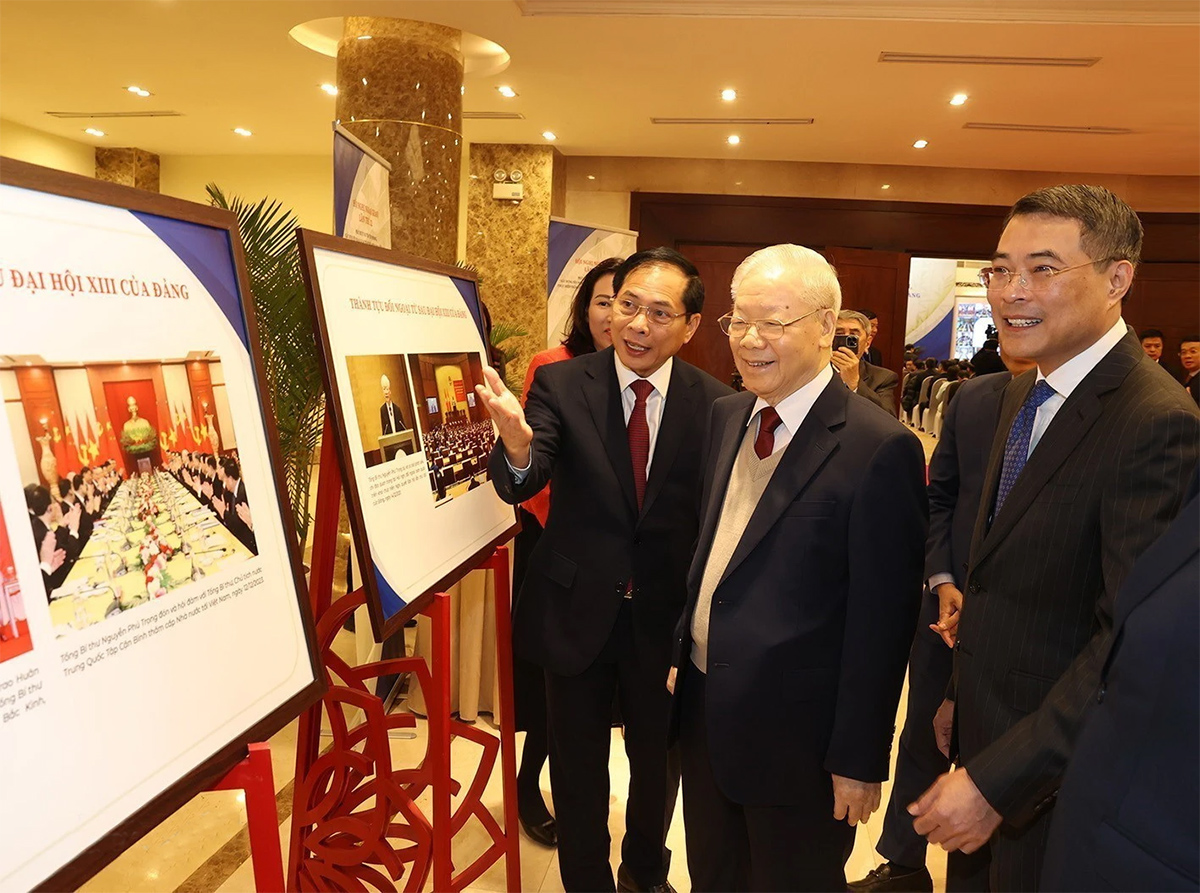
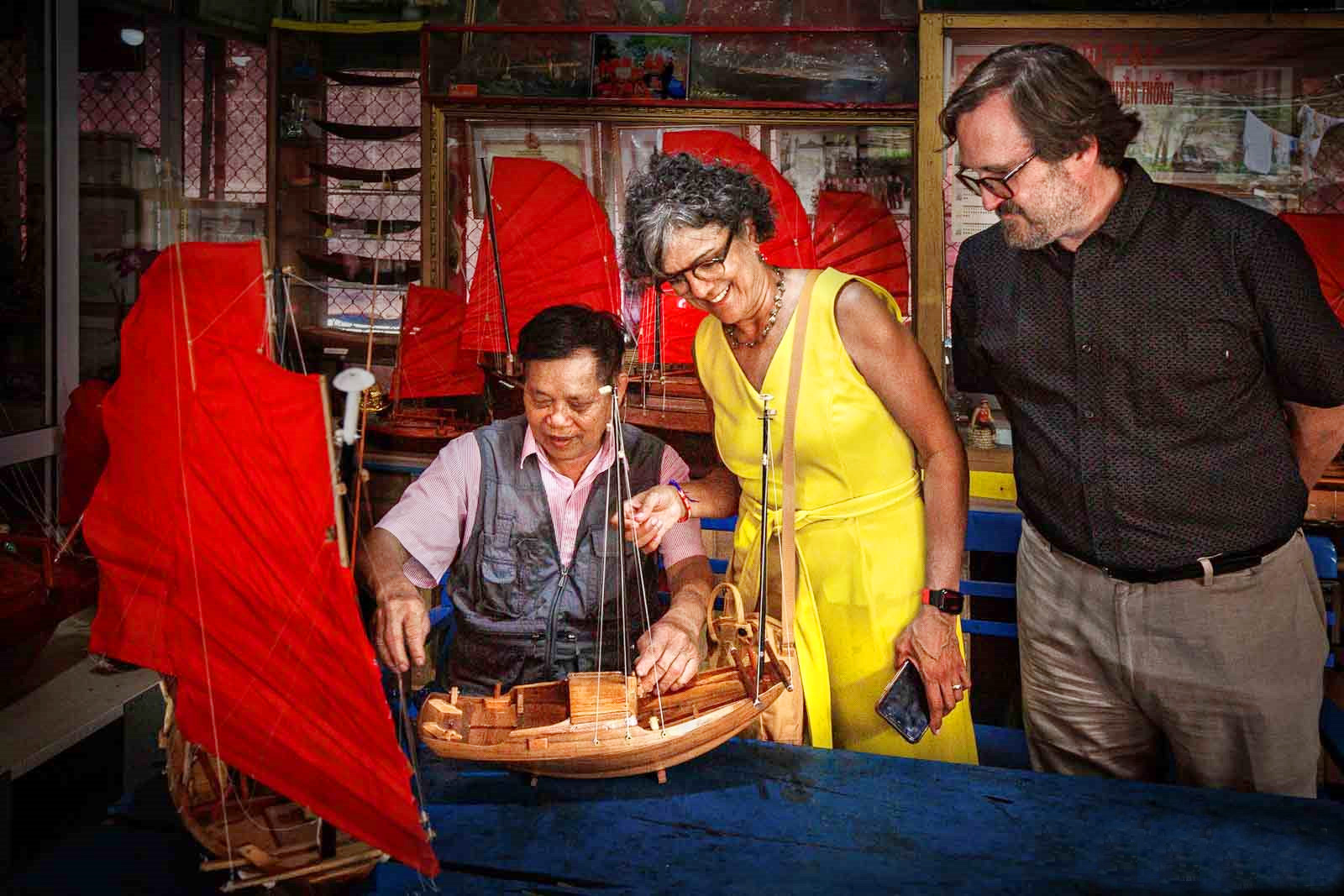
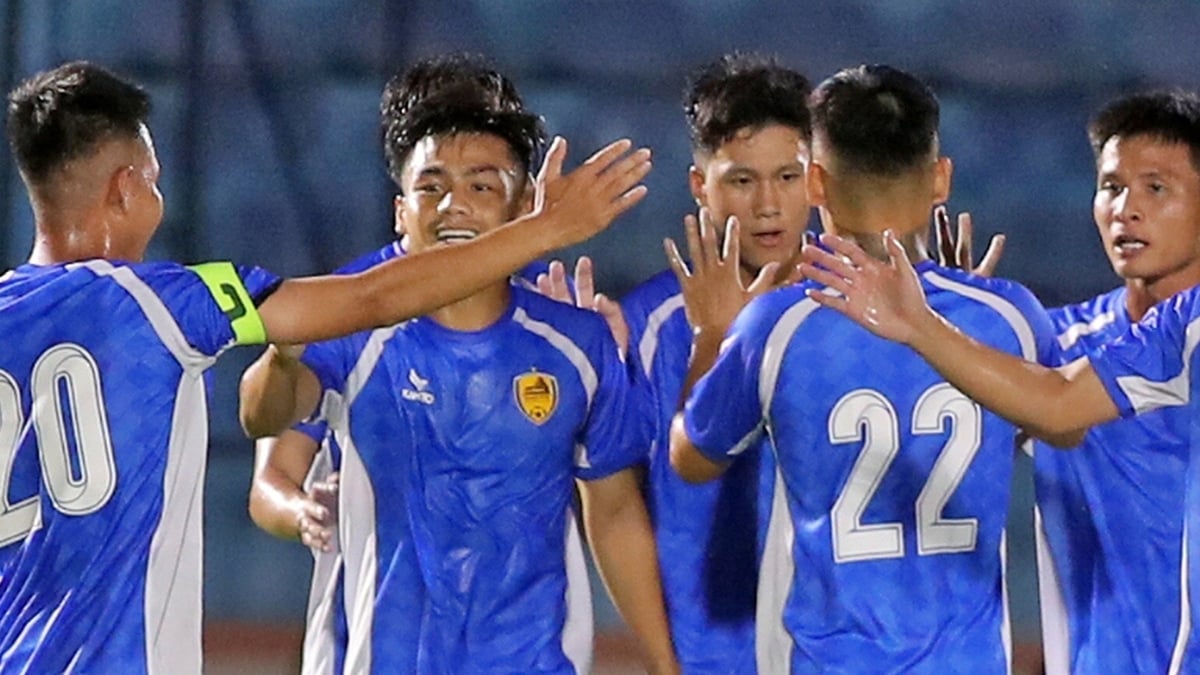
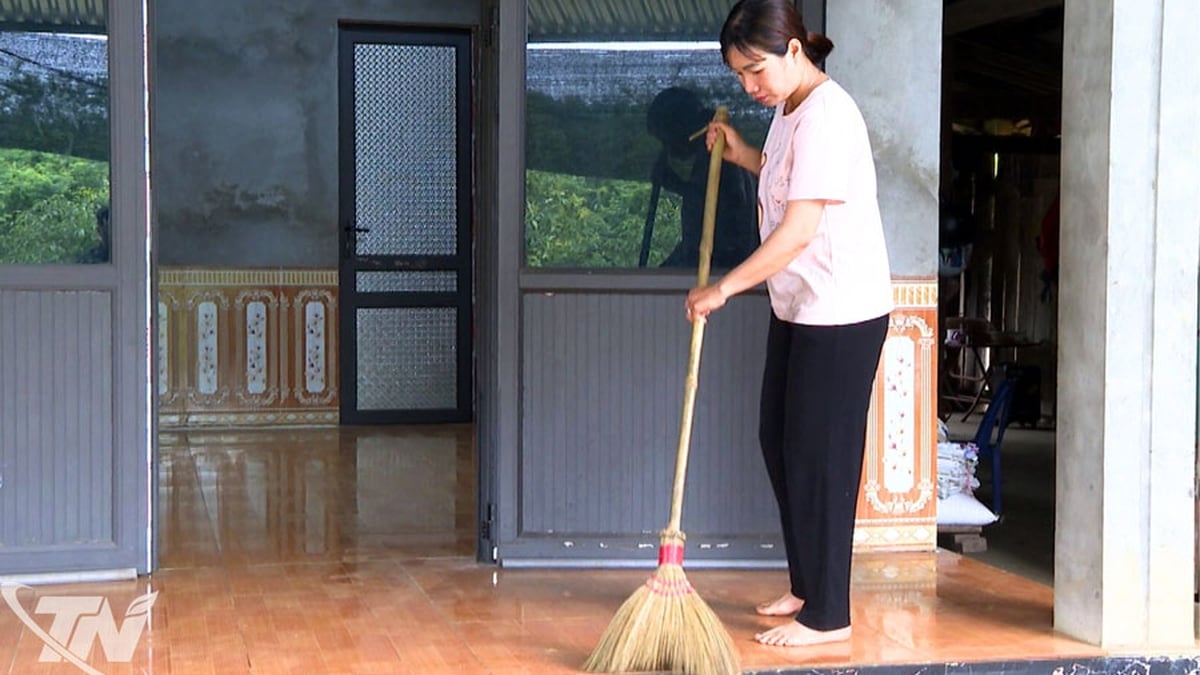
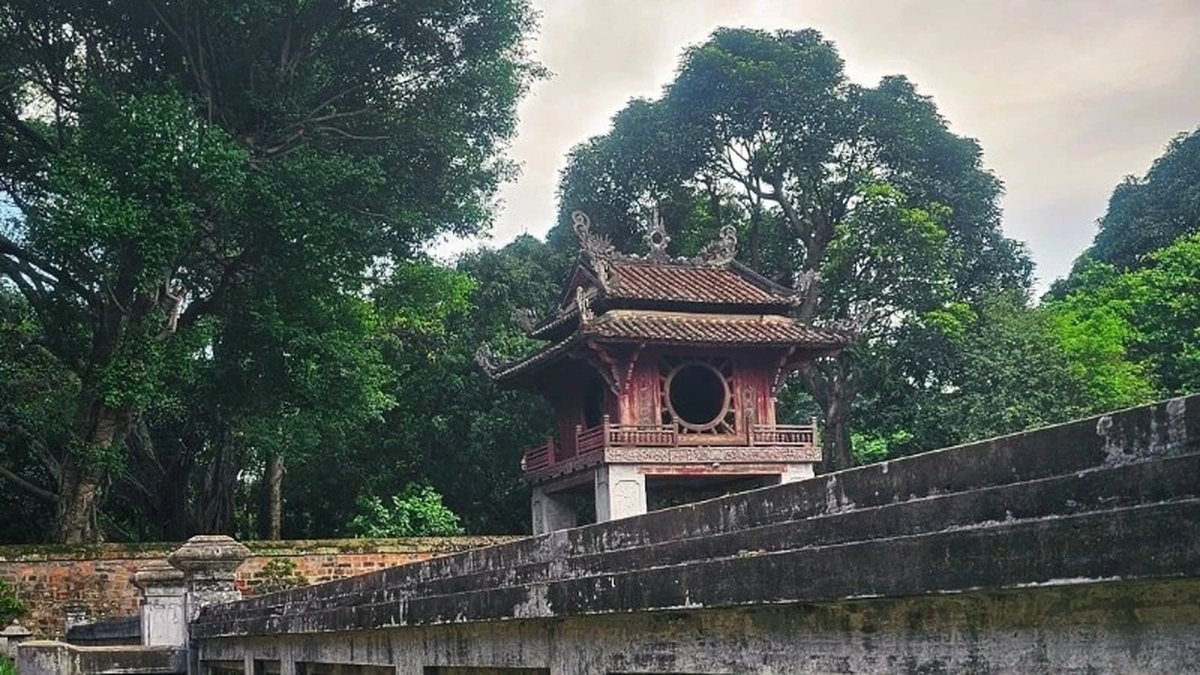
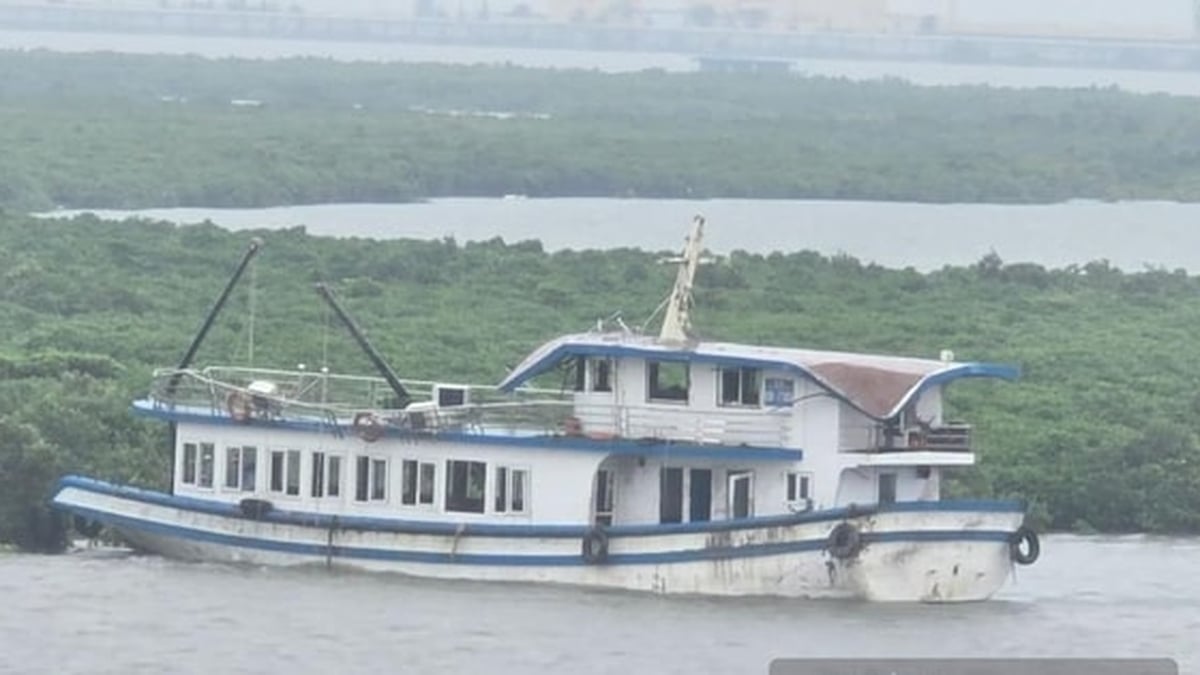
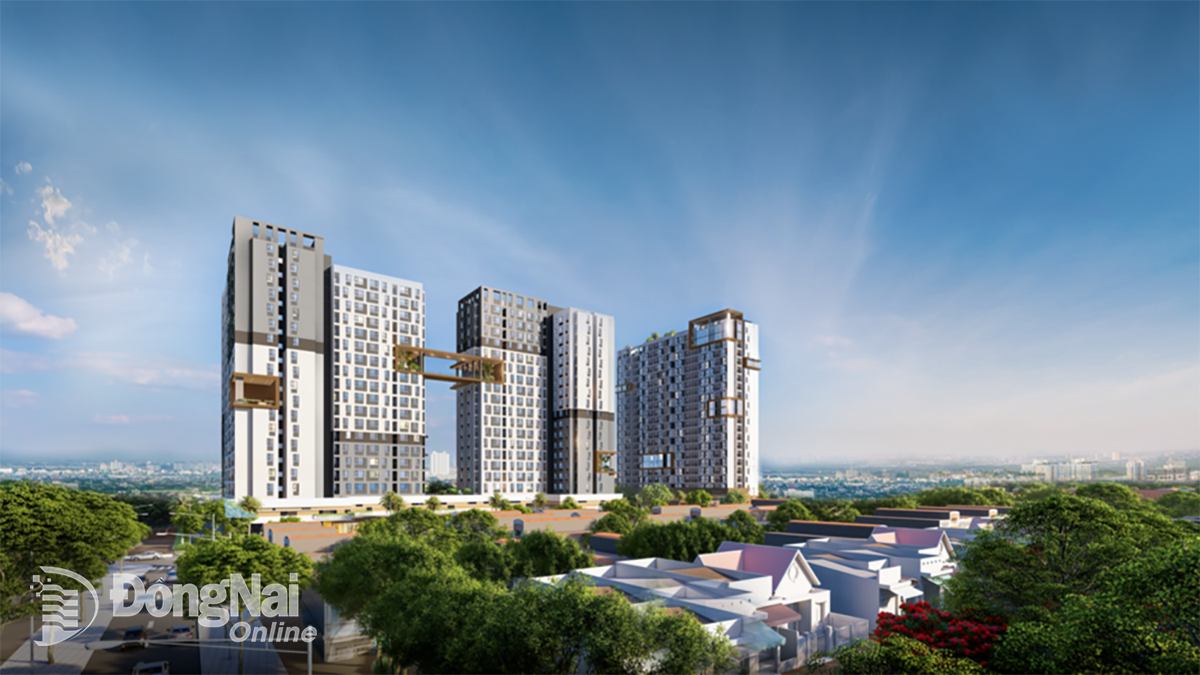
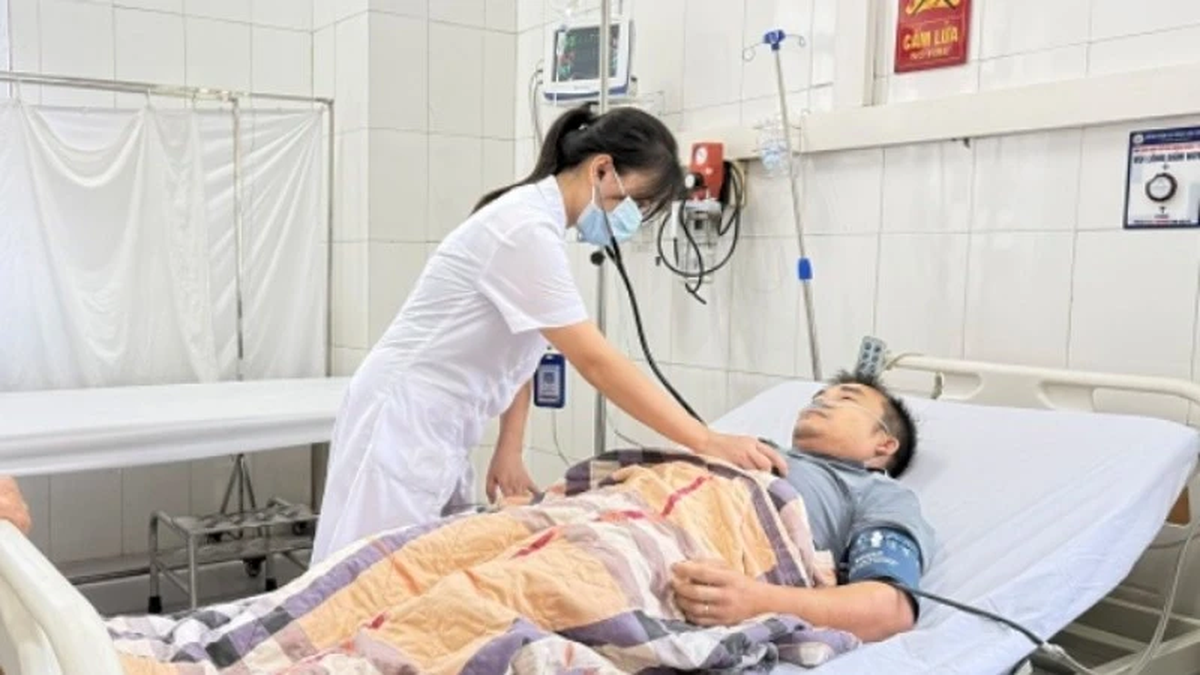
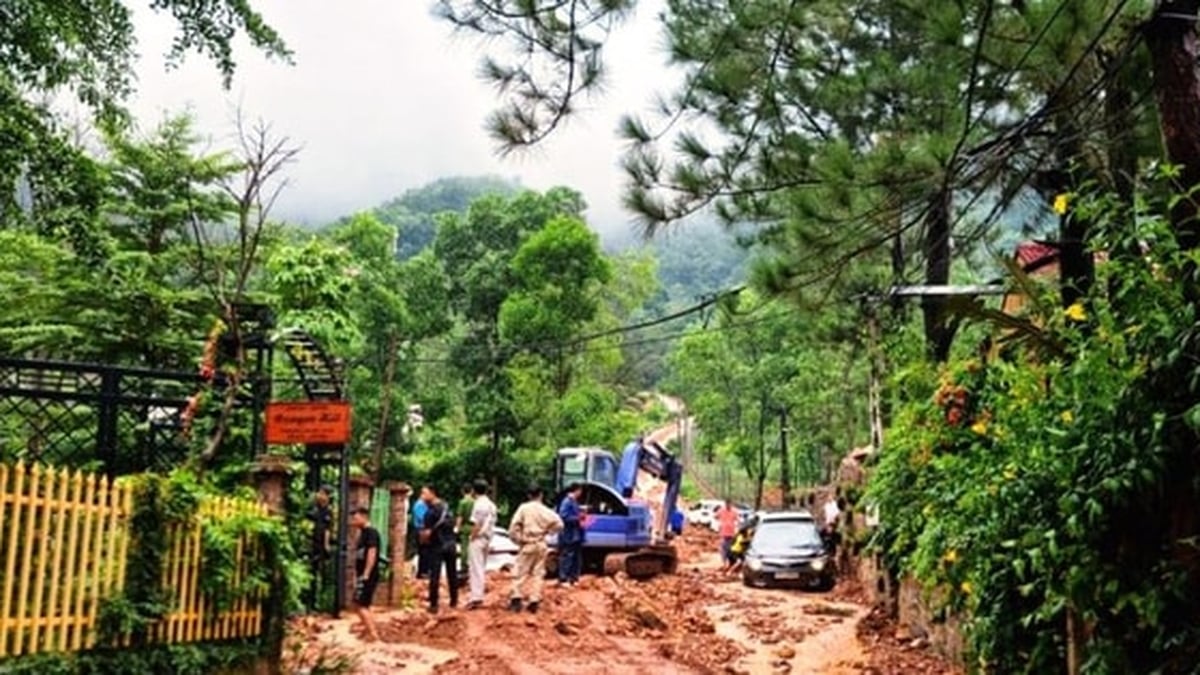
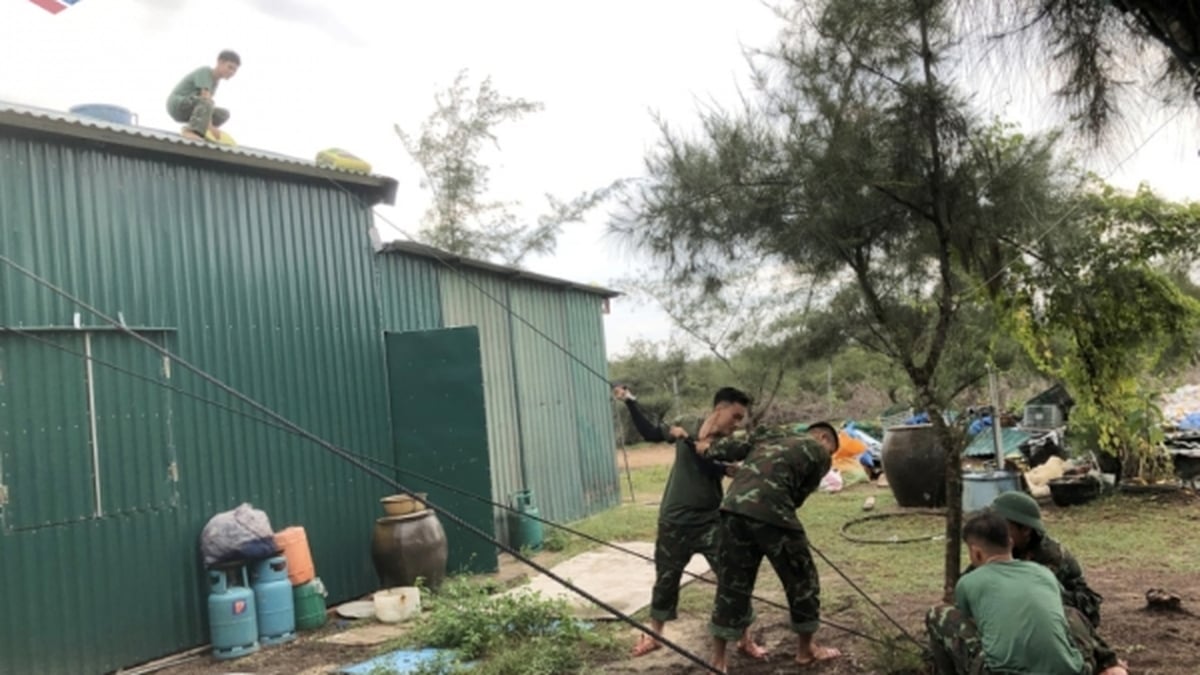
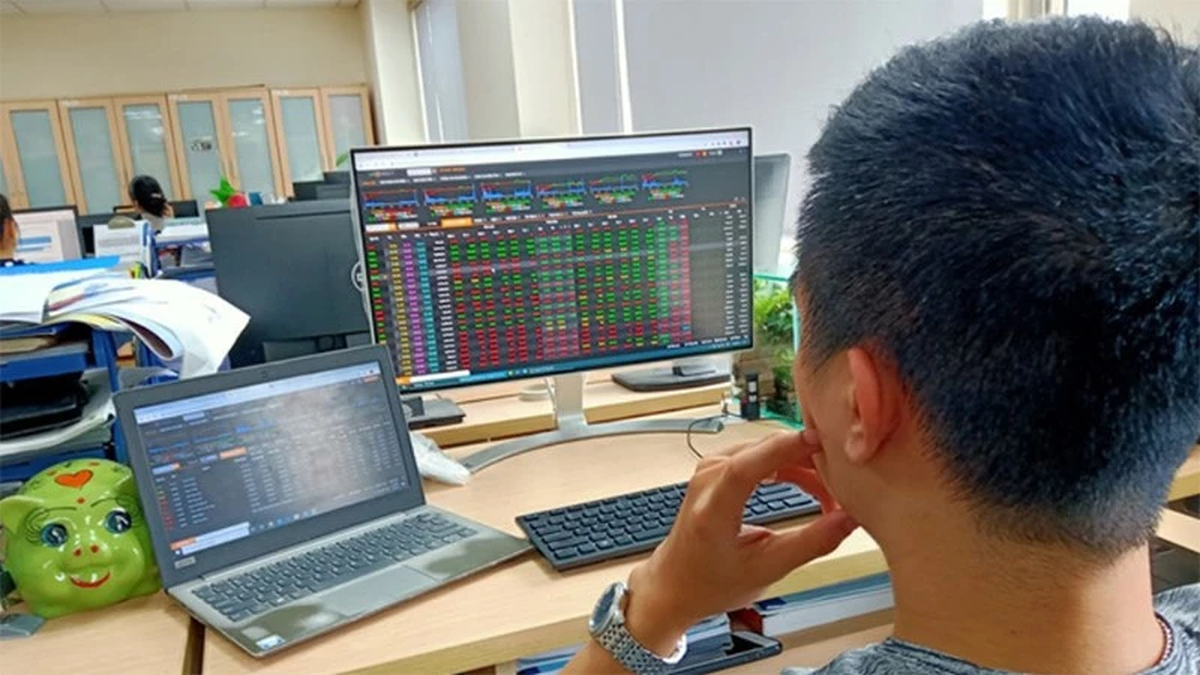
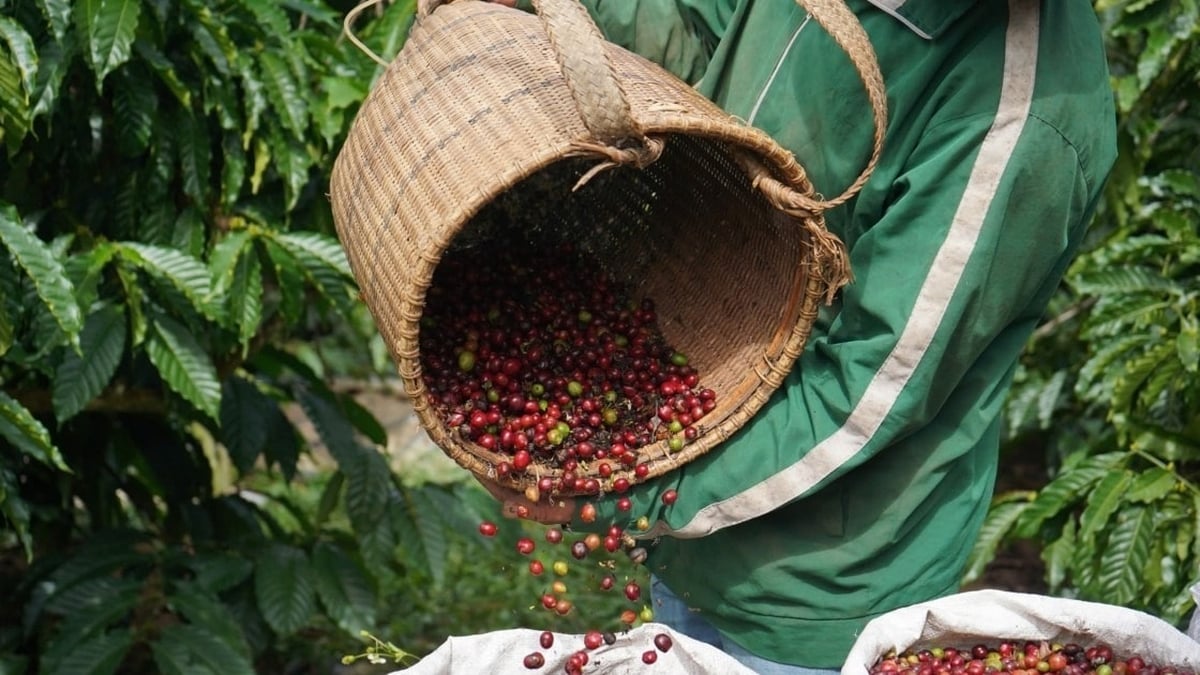












![[Photo] National Assembly Chairman Tran Thanh Man visits Vietnamese Heroic Mother Ta Thi Tran](https://vphoto.vietnam.vn/thumb/1200x675/vietnam/resource/IMAGE/2025/7/20/765c0bd057dd44ad83ab89fe0255b783)






































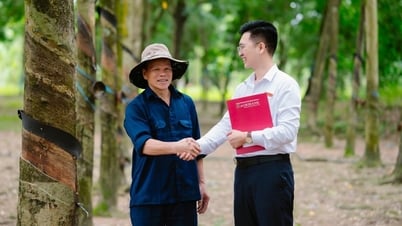







































Comment (0)